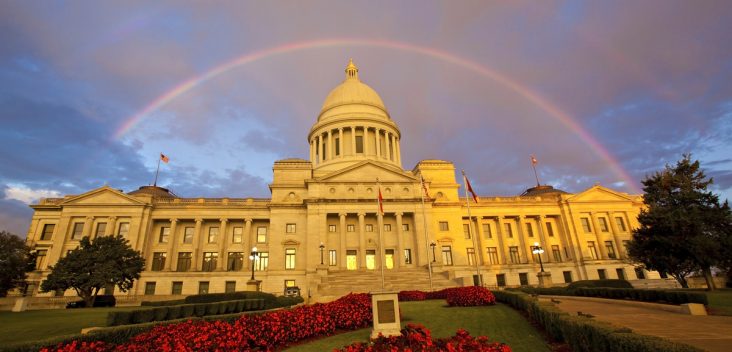House committee refers constitutional amendment, passes ‘affirmative action’ bill
by April 3, 2023 7:47 pm 3,063 views

The House State Agencies & Governmental Affairs committee on Monday (April 3) referred a proposed constitutional amendment to expand lottery scholarships and, with the final vote of the committee chairman, cleared a controversial bill to end affirmative action in state government and colleges and universities.
HJR 1006, which has Republicans and Democrats sponsoring it, would amend the Arkansas Constitution to adjust how lottery money can be used to fund scholarships. The proposal would allow lottery funds to be used to provide scholarships and grants for vocational and technical institutes. If passed on the 2024 ballot, this change would take effect in 2025.
Rep. Robin Lundstrum, R-Elm Springs, is the lead sponsor. The measure will now be considered by the full House as a possible referral to voters.
The panel decided to only refer one amendment out of committee at this time.
In other business, the State Agencies committee was dominated by a debate on SB71, a bill by Sen. Dan Sullivan, R-Jonesboro, that would end state affirmative action. The bill would prohibit state agencies and higher education institutions from discriminating against or granting preferential treatment to an individual or group on the basis of race, sex, color, ethnicity, or national origin in matters of state employment, public education, or state procurement.
Supporters say it will remove quotas and efforts to steer state business, teaching or contracts to people or businesses based on gender or color. Opponents said it would gut hiring decisions, student and teacher recruitment and procurement practices aimed at boosting minority and women participation.
After nearly two hours of committee debate, the vote only had 10 members supporting its passage, but the chairman, Rep. Dwight Tosh, R-Jonesboro, cast the decisive 11th vote after a roll call vote was requested.
Sen. Sullivan amended the bill to include some clarifying language in the committee on Monday which will require the measure to have to route back through a Senate panel and the full Senate again before being considered by Gov. Sarah Sanders. The bill only passed the Senate chamber with 18 votes in early March when it first passed that chamber.
